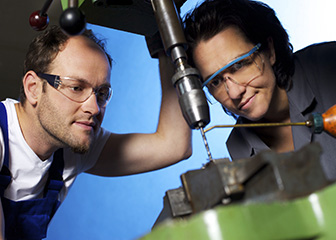Summary

| Quick Facts: Mechanical Engineering Technicians | |
|---|---|
|
$50,110 per year
$24.09 per hour |
|
| Associate’s degree | |
| None | |
| None | |
| 44,900 | |
| 4% (Slower than average) | |
| 1,800 | |
What Mechanical Engineering Technicians Do
Mechanical engineering technicians help mechanical engineers design, develop, test, and manufacture industrial machinery, consumer products, and other equipment. They may make sketches and rough layouts, record and analyze data, make calculations and estimates, and report their findings.
Work Environment
Mechanical engineering technicians help with manufacturing processes on the shop floor or with development phases in research and development labs before manufacturing takes place.
How to Become a Mechanical Engineering Technician
Most employers prefer to hire someone with an associate’s degree or other postsecondary training in a field such as mechanical design technology. Prospective engineering technicians should take as many science and math courses as possible while in high school.
Pay
The median annual wage of mechanical engineering technicians was $50,110 in May 2010.
Job Outlook
Employment of mechanical engineering technicians is expected to grow by 4 percent from 2010 to 2020, slower than the average for all occupations. Nevertheless, there should be opportunities for those who can master new software and technology, as well as traditional manual skills.
Similar Occupations
Compare the job duties, education, job growth, and pay of mechanical engineering technicians with similar occupations.
O*NET
O*NET provides comprehensive information on key characteristics of workers and occupations.
Contacts for More Information
Learn more about mechanical engineering technicians by contacting these additional resources.








